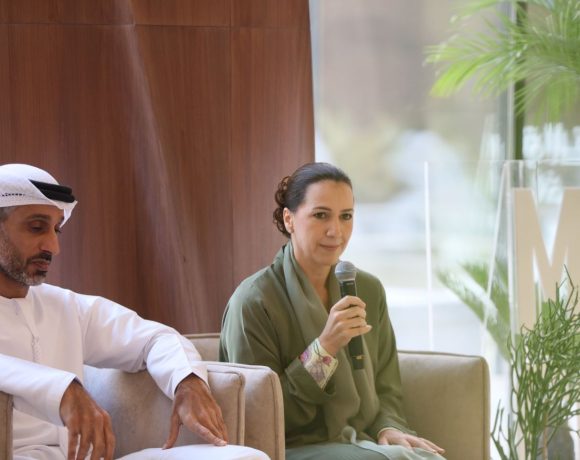UAE is springboard to Malaysia’s quest to enter Middle East fresh produce markets
Malaysia’s sustainable agriculture sector has launched a new initiative to use the UAE as a springboard to penetrate new markets across the GCC region in particular, and the wider Middle East region at large.
Malaysian Bioeconomy Development Corporation (Bioeconomy Corporation), the lead development agency for the bio-based industry in Malaysia, launched the new initiative, titled Sustainable Agriculture Week, at the Malaysia Pavilion at the ongoing Expo 2020 Dubai.

Held from February 21-25, 2022, Sustainable Agriculture Week featured more than 20 Malaysian private companies and governmental organisations and agencies showcasing Malaysia’s sustainable agricultural produce ranging from fruits and vegetables to cutting-edge agricultural technologies, including smart farming solutions, and investment opportunities for foreign players.
The week-long B2B event at the Expo 2020 site in Dubai South district saw UAE-based and other global enterprises sign MoUs worth AED320 million (US$87 million, MR364 million) encompassing trade and distribution, market access, commercial activities, investments, technology transfer, commercial activities, and R&D.

Speaking exclusively to MENews247, on the sidelines of Sustainable Agriculture Week, Mohd Khairul Fidzal Abdul Razak, CEO of Malaysia’s Bioeconomy Corporation, noted that the UAE, by virtue of it being an international trade, investment and financial hub for the Middle East and North Africa (MENA) region, is perfectly positioned to enable Malaysian companies to launch their sought-after agricultural products and services in the MENA region, while also allowing UAE-based companies to tap Malaysia’s thriving sustainable agriculture sector that currently employs approximately 1.5 million workers.
Razak expressed happiness at the AED320 million worth of deals signed at Sustainable Agriculture Week, stressing that Bioeconomy Corporation’s target for the week-long initiative in Dubai was to raise AED300 million (US$81.6 million, MR342 million).
The UAE is Malaysia’s largest trading partner in the MENA region, with bilateral trade, despite the pandemic, topping AED18.37 billion (US$5 billion, RM21 billion) in 2020.
The raft of MoUs signed with various stakeholders during the course of Malaysia’s Sustainable Agriculture Week at Expo 2020 will allow UAE-based universities and other higher technology educational and research institutions opportunities to collaborate with premier Malaysian entities in the sustainable agriculture sector, said Razak; amounting to knowledge transfer in terms of vertical farming, hydroponics, and smart urban farming; all under the purview of the United Nations’ 17 Sustainable Development Goals (SDGs).

According to Razak, Malaysia alone is able to offer niche fruits and vegetables from the Southeast Asian nation to the Middle East region; natural produce that is unique in taste, quality and freshness compared to competing South American and African producers, while also being cost-effective for the region’s importers.
To propel its sustainable agriculture sector, especially in view of the challenges of globalisation, climate change and the pandemic, Malaysia is intensifying measures across the whole value chain to induct and harness the benefits of Industry 4.0, observed Razak.
Under the purview of Malaysia’s Ministry of Agriculture and Food Industries (MAFI), Bioeconomy Corporation is striving to make Malaysia a global biotechnology hub by promoting the MAFI’s National Agrofood Policy 2.0 (2021-2030) which incorporates the deployment of new technologies and digitalisation.
In addition to strengthening its existing food production ties with the UAE and Saudi Arabia, Malaysia is also relying on its privileged Islamic status to reinforce its historical market position with other GCC nations, while also aiming to enhance its market share in these key markets with the export of healthy and naturally produced fruits and vegetables.
More than any other sector, agriculture is the common thread that binds the UN’s 17 SDGs together, and Malaysia, with its huge biodiversity, is doing its fair share in ensuring global food security and will continue to share its produce and expertise in sustainable agriculture with the rest of the world, including the whole Middle East region, concluded Razak.
Last Updated on 1 year by Arnold Pinto













